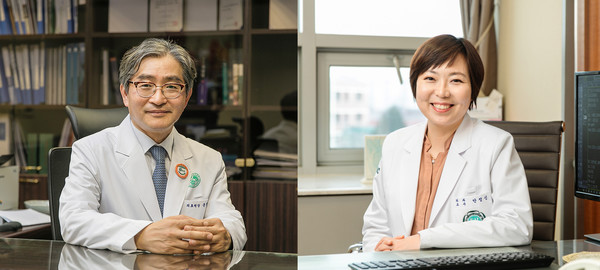A research team at Ewha Womans University Cancer Center for Women has discovered a microbiome that can increase the breast cancer anti-hormone treatment efficacy.

The research team, led by Professors Moon Byung-in and Ahn Jung-shin, conducted a study on 300 breast cancer patients and healthy people to discover a microbiome that improves tamoxifen's efficacy drug used as an anti-hormonal agent for breast cancer.
As a result, the team found that the drug efficacy doubled when they used an anti-hormonal drug and Clapsiella, an extracellular endoplasmic reticulum of the intestinal symbiotic bacteria, together.
“The study proved that the microbiome might affect anti-hormonal therapy, finding a way to use the microbiome to increase the efficacy of anti-hormone therapy in breast cancer,” Professor Byung said.
Professor Ahn also said, “Since breast cancer is deeply related to eating and lifestyle habits, researching the microbiome in the intestine will help find a way to prevent and treat breast cancer.”
The team expects that the results of this study will also apply to the development of supplements to treat breast cancer, she added.
The microbiome is a combination of microbe and biome. It refers to 100 trillion microbes in the body and genetic information about them. More than 95 percent of microbiomes live in the intestines, and these are called intestinal symbiotic bacteria. Microbiomes not only strengthen the immune system of a person’s body but are also highly related to diseases, according to the research team.
The results of the research were published in Medicine.

